Resources
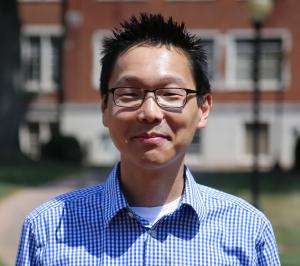
On October 7, 1962, Robert H. Walkup preached from the book of Job at First Presbyterian Church in Starkville, Mississippi. Walkup graduated from Louisville Presbyterian Theological Seminary in 1941 and had been the pastor of this congregation for nine years. Before Walkup accepted the ministerial position in Starkville, Walkup made clear to the church officers that he had “a very tender conscience on the race question.” In the days prior to Sunday worship, there were riots ninety miles away in Oxford protesting the enrollment of the first African American student, James Meredith, at the University of Mississippi. More than two hundred Mississippi national guardsmen and U.S. army soldiers were injured, and two white civilians were killed, across three days of violent skirmishes on the college campus. Roughly three hundred white persons were arrested for their participation in these uprisings seeking to prevent Meredith’s enrollment. Walkup recognized the “widely shared opinion” that the wisest pathway for white ministers was to be silent on the increasing pressures of racial integration. It was an emotional issue and even the slightest mention of integration on a Sunday morning could inflame some congregants. Some clergy were concerned about the pervasive anxieties and simmering tensions that church members brought with them into worship services. And many preachers understood that it did not take much for some members to bemoan a sermon that made them uncomfortable and criticize a pastor for ushering disunity and division into their beloved congregation. Yet Walkup was convinced that silence was not an option. He had accompanied church members through times of joy and sorrow for nine years, and the task before him was to speak the truth in love. Walkup found in Job’s questioning of God, especially in Job’s confusion and anger about why he was experiencing such calamities, a message for the congregation he was leading. Walkup observed that white people throughout the southern states were also wondering why the push for integration was disrupting their lives. He then explained that divine providence is penal, educational, and redemptive. For far too long, white Americans had oppressed Black Americans in unjust systems of slavery and segregation. Walkup interpreted the riots at the University of Mississippi that resulted in two deaths as punishment from God for “the long years of our semi-quasi approval of lynching.” He encouraged his congregation to behold the unfolding civil rights movement as an opportunity to learn about the consequences of racism, repent for these sins, and pursue the redemptive purposes of God. Walkup’s sermon was published three years later in Donald W. Shriver Jr.’s first book, The Unsilent South: Prophetic Preaching in Racial Crisis. Shriver was educated at Union Presbyterian Seminary and pastored a congregation in Gastonia, North Carolina before entering the doctoral program at Harvard University. Shriver therefore witnessed firsthand both the possibilities and challenges toward racial justice in white congregations. In publishing a collection of sermons that white clergy such as Walkup had actually preached in southern pulpits, Shriver endeavored to highlight what was possible. Ten years after publishing this book, Shriver became the president of Union Theological Seminary in New York City and helped to steer the institution through severe financial obstacles and sustain a bold educational mission integrating faith and social justice. Progressive seminaries continue to educate pastors, chaplains, counselors, and faith leaders in myriad ministry contexts. There are certainly other theological schools, including evangelical seminaries, that are seeking to confront white supremacy and enact racial justice, but I find progressive seminaries are distinctive because they possess an intersectional commitment to persons of color, women, and LGBTQIA+ persons that is closer to embracing the fullness of God’s shalom, Christ’s love, and the Holy Spirit’s welcome. Progressive seminaries are flawed and imperfect (more on that in a moment), but I delight in the testimonies and transformations of students, staff, and faculty within these learning communities. In my seminary classroom, it was powerful to recently listen to one queer student share about their experience in a book club with queer and transgender friends. This student told us of how they often mentioned that they are in graduate school without divulging it is a seminary because of the harm and hate several in their group had encountered in churches and from self-professing Christians. After the student revealed they were in fact studying at a seminary, and found there a supportive and empowering environment, one friend expressed surprise but added that it was good to know that such a place actually existed. Some progressive seminaries, however, are in precarious situations. I teach at a denominational seminary (Columbia Theological Seminary) that has decreased from 428 students in 2003 to 247 students presently. Several other PC(USA) seminaries have had similar declines. In 2003, Austin Presbyterian Theological Seminary had 280 students, Louisville Presbyterian Theological Seminary had 193 students, McCormick Theological Seminary had 399 students, and Union Presbyterian Seminary had 384 students. The most recent data shows 173 students at Austin, 99 students at Louisville, 162 students at McCormick, and 181 students at Union. Beyond PC(USA) seminaries, two other examples are Brite Divinity School (281 students in 2003 to 109 presently) and Claremont School of Theology (480 students in 2003 to 201 students presently). At one level, I recognize that the lower enrollment at these seminaries reflects membership declines within several mainline denominations. And I believe nearly every theological educator has heard some version of the mantra that closures and consolidations are to be expected since the high number of historically mainline seminaries is an unsustainable vestige of a past era. Yet I lament the low morale and lack of vitality at some progressive seminaries. I am also concerned that some students seeking an in-person liberal theological education will perhaps have fewer local, or even regional, options. Finally, I am attentive to the potential loss of scholarly contributions with less faculty positions at progressive seminaries. Scholarly production is by no means confined to an academic post, but I am acutely aware of the institutional support that some faculty need to conduct painstaking research, write numerous drafts, and ultimately publish their work. At another level, I must include honest criticism alongside my affirmation. Progressive seminaries need to take a hard look at themselves and acknowledge their stumbles and failings. Evidences of institutional complacency are seen in outdated websites, limited social media presence, and an over-reliance on familiar yet insular networks for recruitment. Several progressive seminaries have also suffered from either choosing or not removing quickly enough the wrong administrative leaders. One sad irony is the dissonance between the radical lessons in the classroom and the conservative operations of the schools themselves in some progressive seminaries. Students are taught to apply all the subaltern wisdom, womanist vision, and liberation theology they learn from their seminaries, but the seminaries retain the same hierarchical structures and exclusionary silos that have long hampered collaborative processes and creative pathways. I am rooting for progressive seminaries, and I hope you are, too. I also want progressive seminaries to be as interested in dismantling oppressive systems in their own institutions as they are in the church and the world.

It’s common these days, you may have seen, on academic conference name tags or at the bottom of email signatures, to indicate one’s pronouns--not “preferred” pronouns, since this isn’t some kind of preference, but rather just an identity a person holds, like any other. It’s happening in other work spaces too. The public declaration of pronouns emerges out of a concern that we may incorrectly assume and use someone’s pronouns, thereby misgendering them, which can result in feelings of alienation, exclusion, exhaustion, invalidation, marginalization, invisibility, or worse. Articles, posts, and university websites (such as this one) will sometimes suggest that instructors ask students to go around in a circle (a “pronoun round” or a “pronoun go-around”) and indicate their pronouns in front of the whole group early on in the semester. The intentions of pronoun disclosure (like so many on-campus diversity and inclusion efforts) are, of course, good. It is intended as a form of inclusion. It is intended to foster a sense of belonging. It is intended to signal to members of the transgender community that such spaces, in the words of my campus, are a “safe zone” for those whose sex assigned or registered at birth may be different than their identified gender. Since research shows how “trans* students are forced to develop skills and strategies for navigating a collegiate environment that continues to be shaped without them in mind” (Nicolazzo, Trans* in College, 2016), asking about pronouns is thought to be one small practice that eases their way. There are concerns, however, with the exercise of going around the room (actual or virtual) and inviting people to share their pronouns. As one Harvard student wrote, this practice “can actually harm the community it’s intended to support.” For some, pronouns may be a private matter. Some students may be “out” as trans to their friends or family, but not ready to share this information with just anyone else—people like peers and professors they don’t necessarily know or trust. Some students may, of course, not be out to anyone at all! Some students may be in the process of a transition and not sure yet which pronouns they would like others to use. Some students may not actually identify as trans, even though others in the room might make such assumptions (based on limited notions of how different genders are supposed to look or behave). Some students may feel the exercise draws attention to them; they may feel spotlighted or singled out, which can be uncomfortable and stressful. Some students may not feel, despite the exercise being framed as an invitation, that they can really decline (since doing so may invite scrutiny and further assumptions). Whatever answer is given in the go-around may immediately place a person in a box, a box that inevitably fails to capture the full person and their complexity. There may not be a learning environment created yet in which it feels safe to disclose this kind of information. One common justification for the exercise is that “when only trans, non-binary, and gender non-conforming people share pronouns, it makes it easy for them to be targeted and harrassed.” But, of course, if transgender people are going to be targeted and harassed, this could very easily (more easily?) happen once they’ve publicly revealed this information, whether or not others have too. This ritual has been called, by some trans critics, a “performance.” Paradoxically, it may privilege those for whom pronouns are “easy” or “settled”—cis folks whose gender and sex align—and further “other” trans folks. Like many other so-called acts of inclusion, it may simply make those of us in the dominant group feel like we’re being good allies, with the accompanying self-pats on the back, when we are simply not doing much to help at all. Think of the Instagram black squares in purported support of Black Lives Matter, whose “performative allyship” resulted in the “the memeification of social justice activism and no substantial progress toward diversity, equity, and inclusion.” Plenty of pieces, like this one, talk about actual needs (e.g., medical and economic) that the transgender community cares quite a bit about. Yet I still find myself not wanting to misgender my students! It seems like such a low-hanging fruit in terms of basic decency. Though I understand that, for many trans folks, someone accidentally using the wrong pronouns (when the intention is there and good) is not really a “disaster”—and can usually be remedied by a simple apology and changed future action—I still would like to proceed with care and a focus on forming good relationships from the get-go. So, what is there to do? One way I’ve solicited pronouns, while avoiding some of the problems of the circle strategy, is on a “getting to know you” questionnaire that I require students to fill out as their first assignment. They get full credit simply for completing it. The questionnaire asks many questions, mostly about why they chose my class, their prior experience studying religion, how their current position toward religion may help AND hinder their learning, and so on. This is an assignment they turn in to me only (though it seeds in-class activities), so there is no forced public disclosure. However, I do indicate on the form that I plan to use these pronouns to refer to students in class, so the pronouns would become public, if a student decided to disclose. That way, everyone can make the best decision for themselves about whether they want this information out there. This is actually an adjustment I made to the form, after learning that this intention wasn’t clear. Originally, I didn’t state why I wanted to know this information or how it would be used. That’s inclusive teaching for you. Always a learning process! And, even with this information, I have accidentally misgendered students before, so being equipped with the correct information isn’t any guarantee we won’t cause harm. But it does make it just a bit easier. Now, what else can we do, beyond the bare minimum, to ensure our classrooms and other learning environments are as inclusive and welcoming and caring as possible, for trans students and all others?
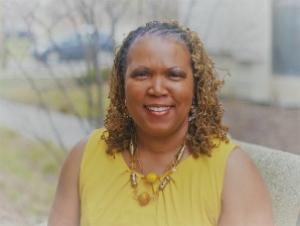
Besides screaming “Don’t do it!” or “Why in the (bleep) would you want to do that?” there are any number of tidbits people just don’t offer when it comes to moving from the classroom to administration. With any number of references to “going to the dark side” (of note: I take issue with any metaphorical use of “darkness” or “blackness” as pejorative), seldom does a professor stepping into administrative waters receive much of a verbal life jacket. After five years as Vice President of Academic Affairs/Academic Dean, I have decided to return to the classroom and “fully” dwell as a Full Professor of New Testament and Culture. After a handful of years and a pandemic, it is time. Yet, as I reflect on this transition, I want to share some tools, tidbits, and techniques that I discovered behind the dean’s desk. Perhaps these thoughts and (in some cases) lessons will prove beneficial to anyone considering an administrative role. I hope my meditations won’t deter any inclinations or cause too much fear and trepidation. Here are my ruminations: As dean there will be deluge of email. Some of the communication is important. Yes, you need to know if a professor can’t teach a class or if the registrar is out sick. You will be added to listserves simply based on your signature. Some of the notices give pause; others are quite questionable. Is it important that the dean provide input on the new hand sanitizer or toilet tissue distributer? You will need to (re)define classroom activity. The student-class engagement decreases. My first year as dean I did not teach so I could get acclimated to the shift in responsibility and learn the numerous accountability layers. As an administrator you will quickly discover that the Boardroom is now your classroom. The Leadership Team meeting is the lecture hall. Staff meetings are, yes, pedagogical sessions. There is the danger of demonizing students. The year of non-teaching was helpful in getting my sea legs under me. However, I soon began to see our wonderful students as plagiarizing pirates, hell-bent on circumventing class portals and graduation paths. Primary interactions with students were pejorative and positioned as “coming to the principal’s office.” Well, I was happy to return to teaching at least one class a term because our students deserved a better view from me. I knew they honored the institution by their enrollment. They were not the imps the “daunting dean” occasions always warranted. Yet, the nature of “go see or email the dean” was the bowl for such unfavorable engagement. On some days administrative work is purely gratifying. A letter of reference for a hardworking student or an on-the-rise staff member is food for the soul. Student award ceremonies give so much ebullience. Faculty promotions and publications are the stuff of good wine. Commencement is just filled with joy and jubilation. People don’t stay in administration long. I really didn’t know that, and yet it is very true. Administration is both arduous and awesome. However, some days I felt awful about what happened in a faculty meeting or with a staff member. Select meetings and email exchanges with students grieve me to this day. By the way, did I mention the excessive emails? Toilet tissue? Hand sanitizer? In the end: Do You! I had to learn to take care of myself, especially when the doctor told me my blood pressure was high. What the hell! There was so much I had internalized without realizing it. I thought my daily exercise regimen and morning devotion were enough. All of my efforts were off-balance and insufficient. I was taking in more than I was releasing. If the body keeps the score, my body was winning (the game of stress and anxiety) while my head and heart were losing mercilessly. I had to recall what my Granny said: “When you die, the church will roll on.” Institutions will say kind things to get you on board. Maybe a few folk will show up at your funeral, but in the end the train will keep rolling. And soon after your burial, a new dean will be sitting behind that desk or in that virtual space. At first I saw in a glass dimly, now I see clearly. You don’t have to tell me twice. Now that I know better, I owe it to myself and my sons to do better. In my five years as dean it was teaching students that really brought me back to my center. The one class a term reminded me of my vocational core. It was the mac to my cheese, the shrimp to my grits—I could go on. I dare not say I am done with administration nor that this work is not a part of my career calling. Ann Garrido’s work on the spiritual nature of administration proved quite helpful. I am finished, but not done. Nonetheless, there was—there is—something about preparing a syllabus, researching articles, planning course sessions, and inviting colleagues to share in my classroom via Zoom that gives me pedagogical pleasure. I need administrative work to stretch my manifold gifts and talents. I need to teach to get to the heart of the matter. I am grateful for these experiences and stand on the cusp of many more. May you continue to discern your teaching path and/or administrative portal.
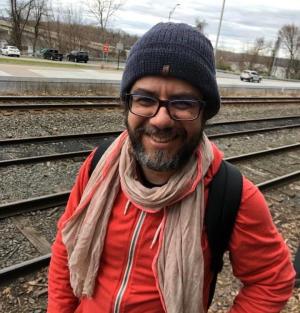
Scholarship through Performance – Part Two When I started to think about a play, I never imagined how hard it would be. To write/perform a play to bring my clown--a new entity--into existence, is a lot of work. I have a theater director working with me and he tells me to think from my body. We talk so much about bodies but we are so often consumed by our brains and mind. My Brazilian teacher, Luis Louis, tells me repeatedly: “Cláudio, you think too much! Do something first, then you can think.” Oh, this process is literally painful. I asked my teacher to be patient with me as I will struggle through this process of learning. I am learning with my teacher that I have to feel what is within me gaining form and shape, life and spirit! I have my clown living within me, but I must give birth to it! In order to do that I have to play with the movements of the body, with images, and with objects, clothes, hats, etc. And my teacher asks me many questions: How does this clown act alive on stage? Does he speak, and if so, in what language? Does he have repetitive body movements? Does your clown have large or small gestures? What is the heart of the clown composed of and what makes the clown alive? My teacher said: You bringing your clown to life is like your clown throwing a bucket of water into a world on fire, believing that you will be successful. Everybody knows that this is impossible, even ridiculous, but your clown does not know that. He wholeheartedly believes he can do it and will do it, no matter what! That is his gift to the world. The portion below shows my thinking process in engaging different forms of knowing, doing, teaching, and performing. This is how the play started to get a form and shape. Main Theme A clown called Pachamama discovers that the Gaia, the earth, is hurting, and goes around the world feeling its pain and struggling with climate disasters. He then discovers that he is Gaia and a part of it. The show is made of several skits that compose a story and a trajectory (still undefined). Everything is yet to be fully developed and needs to go through the test of practice. In each scene I want the clown moving with death and life, disaster and possibilities, sadness and joy, responding to everything with its usual clumsiness, stupidity, awkwardness, sincerity, naiveté, joy, beauty, etc. With this show, I want to help people find courage to go deep into climate disasters and find agency, hope, and faith in the midst of it all, rather than running away from it. In the end I will honor Prof. James Cone and Union Seminary, who shaped me in so many ways. Major Influences My father, Charles Chaplin, Laurel and Hardy, Emmet Kelly, and Slava’s Snow Show A Metaphor Emmet Kelly carrying a bucket of water in a circus on fire. “Seventy-two years ago today, in Hartford, Connecticut, someone photographed a clown carrying a bucket of water toward a fire. It’s a surreal image, haunting in the old black-and-white way. The clown is stepping through an arid landscape littered with what appear to be wooden crates, a lone railroad car, and the suggestion of bleachers. As clowns go, he’s the sad tramp kind, a pained grimace on his face. In front of him, to the left, someone is exiting the frame—a portion of a leg is visible—and the clown follows, gripping his bucket, exuding dread. He’s heading toward something unseen and tragic, something almost ghostly.” - William Browning This show is precisely this: the show is about a clown carrying a bucket of water to help the earth that is already on fire. Place This is a theater play to be performed at Union Theological Seminary in NYC. The chapel has no fixed seating so I hope to have people sitting on two sides of the chapel (or in a U shape) with the play happening in the middle. The space has some lightning that I can use. Here is a picture of the space. How is this all going to be and happen? I have no idea. One thing, and one thing only, I know: this is much bigger than me. It scares me so much! I hope that with practice anxiety will turn into a certain trust and that as my clown starts to move, I will feel more confident. I will let you know how it goes.
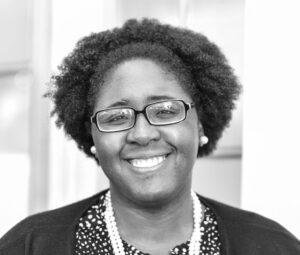
PAYING ATTENTION I try to work it in casually, inconspicuously, but of course it is glaring. Students notice it immediately – the emphasis on a student’s progress instead of grades, the focus on their and my mental wellness as the primary means to be sharpest in learning, the inverting of power dynamics and the undoing of traumatizing power relationships in how the classroom is run. My body notices it, too. Decolonizing the classroom is difficult work and wildly unfamiliar territory. It runs directly in the face of what we instructors and professors know the classroom to be. And it runs directly to our worst fears and insecurities and does an elaborate dance around it – but not in a taunting way. It dances freely in a spirit of welcome and joining. A decolonized classroom, this liberating means of being communal learners together, requires constant movement. And truth-telling, where everyone names their fears. Students locate themselves in the learned cycle of education where their performance is assumed to dictate their worth. And instructors and professors work hard to resist the shameful impulse to agree. For this uneven correlation is all we know: performance is worth. Worth is performance. But is worth the performance? Decolonizing work requires an intense amount of internal resistance, of re-narrating what we have been trained to recognize as true, as opposed to what we may instinctually know to be true. Education can be ruthless at worst, engrossed in its unmoving standards at best. Instructors and professors know this all too well: “How else, besides grading, are we supposed to measure progress?” “How else will students take us seriously?” “How do we ensure students prioritize their coursework?” “How do we make sure our assignments do not take a back seat to another’s class or to a student’s ministry or to the ups and downs of their life?” This is the academic-body’s response to fear: rhetorical questions willing to gently carry our insecurity, for we honestly do not know the answer to these questions. And we may never know until we experiment with inverting power in our course structures. And failure. We need to try failure – again and again. And once we are accustomed to failing, to feeling like we are losing our grip on the notion of rigor we were trained to recognize – by sight, or by the all-too-familiar tightness in our chest - we can ask what lesson(s) failure has been trying to teach us all along. We instructors and teachers must become disciples of our failures, insecurities, and fears. Because it almost feels unbearable to not be liked or to feel misunderstood or to sense disrespect. But a decolonial classroom asks the instructor/professor what the lessons are: What messages of community and communal learning are thrust to the fore when the body struggles with varying messages of acceptance? In actively shifting the purview, the how and who, of learning, what might be able to be seen and understood differently? In a world inundated by systems of dominion and domination, mastery and expertise, often ignorant of the fullness or complexity of a person, what might a holistic form of respect look like? It has to be felt in the body. There is no way around it. We will only get pieces, as a common complaint is that we cannot be everything to every student. This much is true; but even in recognizing this expansive truth, expanding our sense of resisting strictures is still a lesson well-learned. HOW TO GAIN TRUST IN THE CLASSROOM Dear instructor/professor, How do you feel? It is only from here, the space of feeling, that decolonial possibility in the classroom can be born. It is not method. It is not strategy or project. It is a return to humanity, it is still-unfolding fullness. The process of learning happens to occur in the midst of a collective space where humans are learning how to be appropriately human together. Your decades of study does matter; but what matters most is your decades of living. Does your living have room in your classroom? This is decoloniality; it is a (means of) living into. To be decolonial means treating people like humans - not objects, or projects, or cogs in a machine - but like their life is beautiful and important and lovely. When instructors/professors begin to get a hold of this – first by addressing our fears, and next by allowing space for our pedagogical dreams to blossom and run a bit freer, then and only then can we broach the conversation and winning students’ trust.
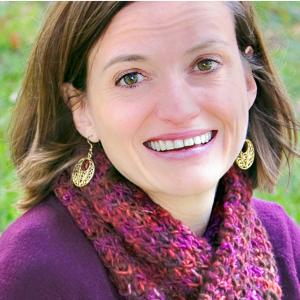
“So, if anyone tells you to go to hell,” I say to my students, “you can say, ‘that’s fine—because Jesus has already been there, so I won’t be alone.’” When I started teaching theology at Columbia Seminary nearly twenty years ago, nobody told me that I needed to talk about hell. And for many years I barely mentioned it. In my own formation, from Sunday school through doctoral studies, the threat of hell had been either a quaint theological fragment of an earlier era, or a harmful piece of proclamation from Other Christians. It was not a pressing concern of the contemporary theologians I engaged, and it was not even a major topic for classical theologians like John Calvin. Like James Cone, I was more concerned about living conditions that might be called “hell on earth” than about any future state of punishment. The one place I did address hell was in connection with Jesus’ “descent into hell” (as affirmed in the Apostles’ Creed). Students wondered what in the world this might mean. It regularly prompted discussions between students who were familiar with this line and those whose churches had deleted it. “Do you ‘descend into hell’?” I began to ask my classes early on when we came to the topic. Students tended to have strong opinions. Ruminations on the presence or absence of hell in the creed led me to discover startling good news in this affirmation, in two ways: To say that the human Jesus of Nazareth experienced not only physical death, but the fullness of spiritual alienation from God—and to affirm that this same human is also one with God—is to affirm that God in Jesus somehow enters the depth of human suffering. There is nothing in human experience, not even hell, that is bereft of the presence of God. It’s Romans 8:38-39 all over again. The descent into hell is not the final word. As the ancient image of the “harrowing of hell” and the common Orthodox anastasis icon portrays it, Jesus descends into hell and then draws up those who are dead into new life. Those in Hades are now joined with Christ in resurrection. I would not have reached this recognition of the good news of Jesus’ descent into hell without following the questions of students. But for many years, this is all I said about hell in Theology 1 and 2. That changed recently, as students began to ask new questions. A couple of years ago, toward the end of the second semester of theology, my co-teacher Tim Hartman and I were talking about Christian faith in a world of religious diversity, and several students were troubled. “We have been taught our whole lives that if you do not accept Jesus Christ and confess him as savior, you are going to hell,” they noted. “Why have we not talked about hell all year?” Tim and I paused. When our classroom had been majority white, I had avoided this topic because I did not think it was important—and no one had questioned that choice. Now that our classroom includes a majority of students from communities that have been minoritized because of race or sexuality (or both), the question resounds differently. We decided to make a change. This year, we added some readings about hell in connection with our discussion of salvation. Engaging this conversation directly enabled students to interrogate what they meant by this term, and how it was related to the gospel. Is “salvation” solely an individual matter, as popular visions of hell seem to suggest? Or is it communal, concerned for the well-being of all people and the whole world? Are heaven and hell actual locations, and if so, what does that mean? What does “hell” suggest about the relation of bodies and souls—are we talking about “souls” going somewhere after death? Focusing on hell also enabled us to wrestle afresh with Calvin’s doctrine of double predestination, in which eternal damnation is not the main point, but is a logical consequence of God’s eternal decree. Not many people (including me) wanted to defend Calvin on this point, but how does hell acknowledge the reality of God’s righteousness, and the significance of human responsibility? And finally, how has teaching about hell functioned in our churches, particularly in ways that harm people who do not conform to social norms? When we followed our students’ questions and made room for conversation about hell, it defused the concerns about its absence. Hell, actually became a fruitful part of a larger whole. So, here’s the takeaway: Following the surprising questions of students, even into hell, led to my own deeper discovery of the good news of a topic that I had previously avoided. How might attention to other student questions similarly open new vistas of discovery in the theology classroom?
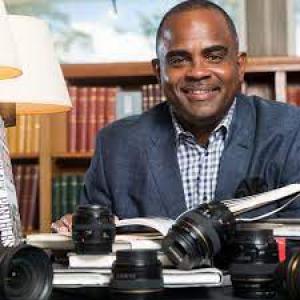
On March 1st, the Wabash Center released a new volume of its Journal on Teaching centered on the theme of "Changing Scholarship." The issue features a multi-media essay called, "The Mother of Teaching, Ms. Earlene Watkins: A Real Mother for Ya," by Dr. Ralph Basui Watkins. The piece explores how Watkins' mother modeled for him a transformative, holistic approach to teaching. Accompanying the essay is a playlist on Spotify: Click Here to Listen. Below, Watkins walks us through his song choices and how he cultivated the soundtrack for his recent contribution to JoT.

This semester I am on sabbatical and I decided to shift some gears in my scholarship. I have depended so much on a certain scholarship for my teaching that I feel now another world is opening for me. Since I opened myself to a different relationship with the earth, one of allowing myself to be affected by it, so many things are happening to me. I have always been eager to know everything I can learn about what I hear, touch, and see. My library is way too big and what could have been my retirement is now composed of shelves packed with books. For a few years there has been something growing in me that tells me to slow down that eagerness and sheer desperation. A while ago I lost 1,600 computer files with all my texts, books, scholarship, research, which was devastating. I was thrown into a place of fear, grief, anger, and loss. I felt like I had nothing to rely on. After a long period of reflection, I now wonder if it was my own unconscious telling me: enough with that, that eagerness, that desperation to know. I started pondering my reasons for hiding under those unfulfilled desires. Was I trying to cover up everything that I actually don’t know and am so afraid people will discover about me? What was this desperate need to try to know everything? I am still wrestling with it. And let me say, books haven’t stopped arriving. But now that I am trying to figure out how to pay attention to the earth, I have more to learn and more to read and have to pay attention differently. There is something in me now that is closer to joy than obligation when I read, when I research, when I teach. As I move closer to the earth, I am trying to do what the Brazilian song says: “Caress the earth, know the desires of the earth.” As I do this I am getting closer to myself and whole new worlds are opening up. And that means other ways of learning, teaching, relating. As I learn with indigenous people that the earth is always inhabited by doubles and multiples and other natural and social relationships, I am discovering the joy of my symbiotic being and keep pondering what it means to live in these forms of world relations. My spirituality, always so much dependent on modern forms of thinking, is now becoming freer, as I search for untapped forms of my own traditions and other wisdoms and ways of being. I feel I need to know the world through my belly button, through my intuition, through my perception, but how do I do that? This discovery is pushing me to a world of feelings and sensations, experiences and knowing, that are pretty much anathema for proper scholarship. But I am allowing myself to feel with other beings in ways that I never allowed myself to do and be before. I am gaining the company of other thinkers: other theologians, artists, anthropologists, biologists, geologists, and indigenous thinkers guide me. It was during COVID-19 that the idea of a play came to me. It started with a visitation from my father who was a fantastic artist with a combination of many gifts: a musician, a clown, a theater actor, a song writer, a movie buff, an inventor of games, a poet. During my daily walks I felt his presence. He came to me as a clown and a question started to circulate in my head and my body: How can we engage climate catastrophe, devastation, and grief using humor and laughter? What if a clown walked around the earth figuring out its disasters, sadness, and losses and responded like a clown with naiveté, stupidity, awkwardness, lightness, and humor? Since then, the idea of a play has stayed with me. I have written a script and am looking for funds. But how do we raise funds when all we know in academia is about writing books, editing books, articles, journals, and so forth? Furthermore, the word “clown” is a red nose, oops, a red flag to any serious scholarship. I tried applying for scholarships from the usual places I know to no avail. They all look for innovative thinking, but let us be honest, even the word innovative has limits. Clowning? Really? A friend who proofread my proposal asked, “Do you really need to use the word ‘clown’?” It was a great question and I laughed. Fundraising seeming hopeless, I started to save money. I asked my school for help, and I am getting great support which I am so grateful for, and I feel blessed. But this project will need more money and I am trying in every way I can to get some. I decided to include students and created a class on humor, laughter, and performance in order to do this through pedagogical lenses. I will teach this class with a musician and scholar from the Ifá tradition in Brazil. Here is the course proposal: Humor and Laughter: Resilience and Resistance Across Religious Traditions To be able to laugh, be humorous, and silly are tremendous ways to resist, show love/compassion, and affirm life at a time when depression, anger, sadness, climate catastrophes, and disasters of all kinds are piling up. This course focuses on the following resources of world sense: the Russian Christian tradition of the Holy Fool, Indigenous traditions of Coyote, Afrodiasporic oralities present in the sacred Itan of Ifá, and the multiple presences of Exu with the recognition of the coexistence of positive and negative forces. This course is a theoretical-practical introduction to religious humor and laughter through musical improvisation, sound sculpture, dance, and ritual-performance integrating the senses with the environment. The course will end with a collective performance/play called When Pachamama Meets Gaia. This course is taught by religious teachers/performers who have their foundations crossed by the religious traditions of Christianity and Ifá. Now I need to catch up with my own ideas and proposals. The syllabus is on the way but the most difficult thing now is practicing so my clown can come to life. Next time I will say more about the show and the processes of transformation I am having to go through in order to do this.